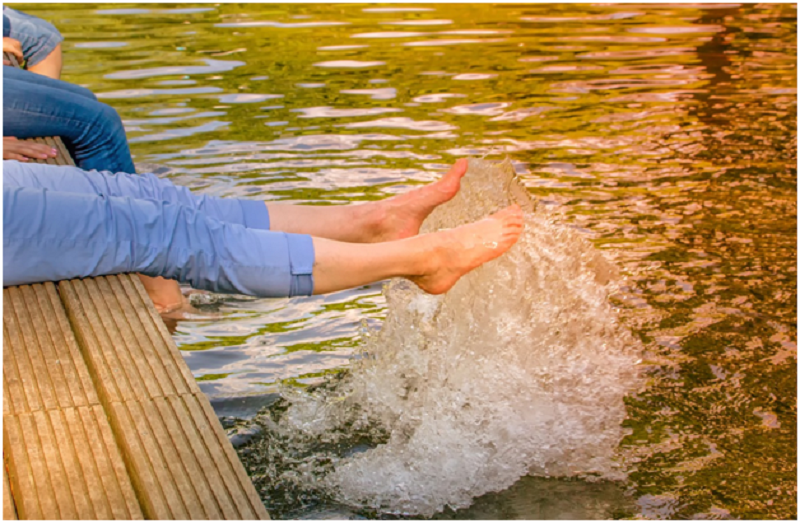
Women, in particular, are very meticulous when it comes to their legs. Who wouldn’t? Nice-looking, flawless legs are always attractive and sexy. Besides, we rely on our legs to carry our body weight so we can be always on the go to do work and the activities that we love.
When you do a lot of standing, walking, dancing, or anything that involves using your feet and legs, these become the most abused parts of the body. So, at the end of the day, you just can’t help but give your feet and legs some love.
Our care for our legs and feet may include getting a foot spa and massage from time to time, waxing them or shaving them to keep them hair-free, choosing comfortable footwear, or simply buying a nice pair of socks or stockings. Whatever you do to love your legs, you’re indeed doing a good job.
Despite all these, annoying flaws might start appearing on your feet and legs, which include varicose veins. When you do have it, you might just feel like concealing your legs most of the time as varicose veins are unsightly, especially when it makes your legs look like an edible garden of climbing veggies.
Also, don’t you just hate it when your legs catch undue attention but not for compliments? Yes, I know. It irks me, too.
But what causes varicose veins anyway?
Why You’re Getting Varicose Veins
The legs and the feet are the areas where varicose veins are most likely to occur. Our veins contain small valves that help in healthy blood circulation. They function by preventing the blood to flow backward so that it can continue flowing smoothly to the heart.
However, when these small valves are compromised or weak, they can’t do they function well, thus, blood flows backward and accumulates in the veins. This situation causes the veins to be swollen and enlarged. As a result, you get varicose veins.
Varicose veins usually appear as blue or dark purple. Also, in many cases, they are bulging and lumpy. When someone has varicose veins, she may experience other symptoms including aching and heavy legs, a burning sensation in these areas, swollen feet and ankles, muscle cramps especially at night, and the skin over the affected veins may be dry, itchy, and thin.
Symptoms may flare up during warm season or when you’ve been standing for a long time. A Houston varicose vein treatment specialist suggests that it is best to undergo a medical check-up to evaluate your condition so that you can get the treatment that’s right for you.
You are at risk of developing varicose veins if you are:
Female
Women are more prone to developing varicose veins than men. Blame it to the female hormones that change every time you experience PMS, or when you’re pregnant, or during menopause. These hormones affect the way the valves in your veins do their function.
In a family where a member has this condition.
You can blame it to your genes, too. If a close family member has this condition, it might be hereditary in your case.
Over the age of 50.
As we age, our veins lose their elasticity making them weaker and prone to damage. Read more here about other diseases of the veins.
Overweight.
Excess weight puts extra strain on your veins. When this happens, your veins work harder than they need to, so as to keep your circulation healthy. Extra pressure on your valves makes it prone to wear and tear that eventually leads to varicose veins.
Pregnant
When you’re pregnant, your body is producing more blood to support the growing baby. Also, you gain extra pounds. Pregnant women are prone to developing varicose veins in their pelvic area as well as their legs and feet.
Standing or sitting for long periods on a daily basis.
Do you have a job that compels you to stay in the same position the whole day? Perhaps, you’re standing or sitting for prolonged hours. Staying in the same position for long hours a day doesn’t promote healthy blood circulation. Try to move around at least every 30 minutes.
Other conditions that are linked to developing varicose veins are having some abnormal blood vessels, previous blood clot, or a tumor. If your varicose veins are causing more discomfort, it is best to consult a vein specialist so you can find relief through proper treatment, medication, and certain lifestyle changes.
